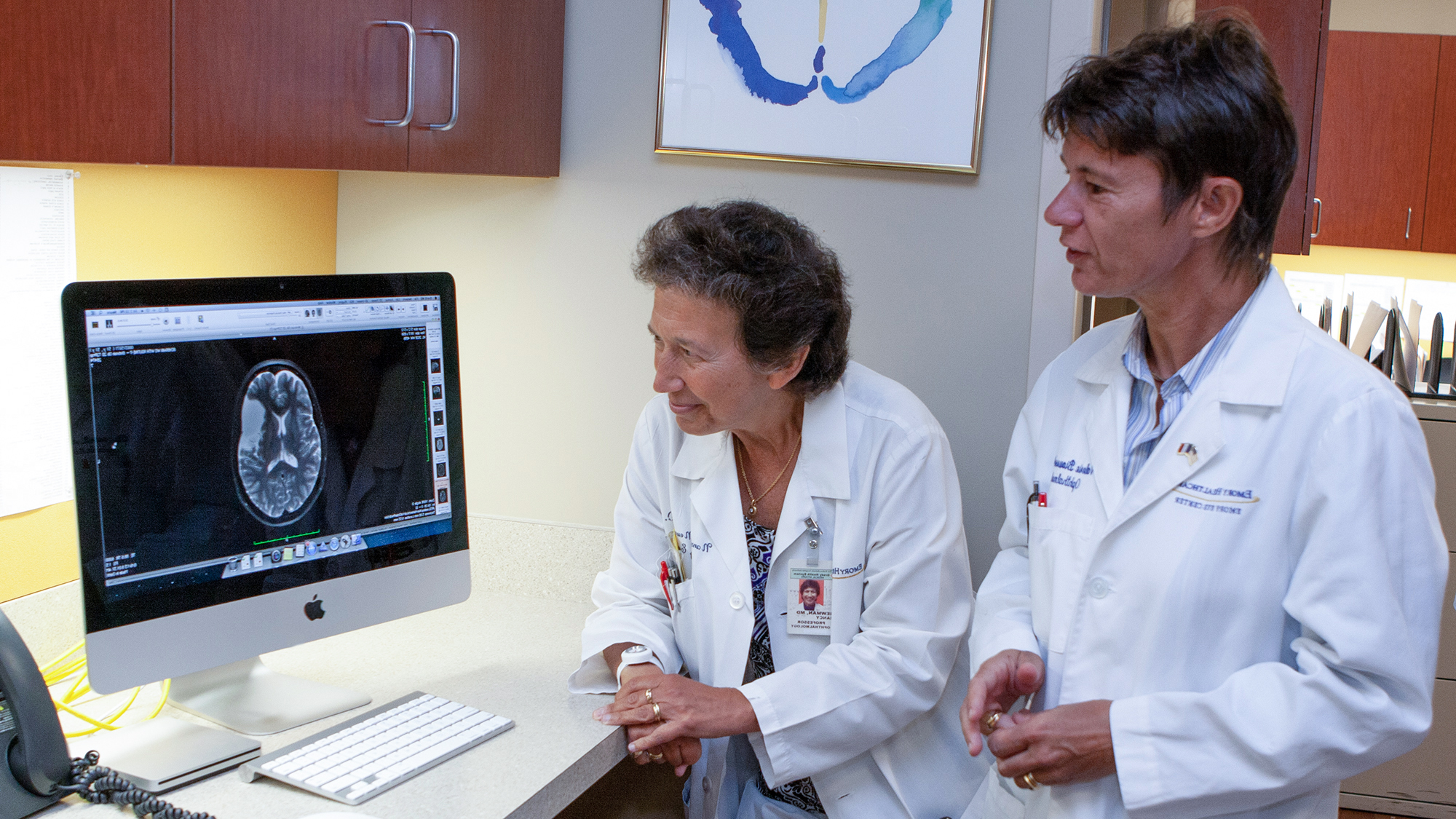Taking a comprehensive approach
The Neuro-Ophthalmology section at the Emory Eye Center offers expertise from multiple disciplines, including pediatrics and strabismus surgery. The entire team is involved with organizations such as NANOS, AAO, AAN and ANA that are pushing the field forward. The section works closely with the Emory Eye Center's Clinical Trials program to identify new avenues in treatment and prevention. Residents and fellows in this service routinely consult with colleagues in neurology, neurosurgery, rehabilitative medicine, neuroradiology, ENT, and emergency services.
The clinical faculty in this section is renowned for the care it routinely provides to individuals with visual disturbances due to injury or diseases of the brain, the optic nerve, and structures responsible for eye movement and pupillary function. The team treats individuals with visual difficulty secondary to neurologic disorders such as stroke, multiple sclerosis, trauma, or tumor.
Integrated didactics
Collaboration is key to the success of this section. All of our clinicians and researchers work closely with experts from the Emory Brain Health Research Center, the Emory Neurological Surgery Department, the Emory Pituitary Center and other medical services that specialize in diseases of the head and neck region. The team utilizes state-of-the-art diagnostic modalities including computerized perimetry and multimodal imaging of the optic nerve to provide the best consultative services for patients with complex neuro-ophthalmic conditions.
Clinical rotations, lectures, and research opportunities are designed to maximize practical and theoretical learning for medical students, residents, and fellows. All members of the neuro-ophthalmology team have the option to participate in didactics for residents, case discussions, conferences, and basic science research meetings. Ten times each year, neuro-ophthalmology fellows organize a neuroradiology conference for the neuro-ophthalmological residents.
All residents rotate through neuro-ophthalmology, where they cover calls for night and weekend neuro-ophthalmology consultations under the guidance of a fellow. The attending physician in each clinic spends time discussing the status of each patient, one-on-one. lmaging studies are reviewed with the attending physician. Fellows are encouraged to collect images and prepare educational presentations based on these patient encounters. They are also expected to develop and give lectures for residents and to participate in workshops for medical students
The Neuro-Ophthalmology Virtual Education Library (NOVEL)
Residents, fellows, and clinicians at the Emory Eye Center are afforded free access to the Neuro-Ophthalmology Virtual Education Library (NOVEL) - an online, open-access learning resource. Created through a collaboration between the North American Neuro-Ophthalmology Society (NANOS) and the University of Utah Eccles Library, NOVEL has a collection of digital learning objects that are curated and maintained by the faculty of the Emory Eye Center.
Neuro-Ophthalmology Fellowships
The Emory Eye Center offers select ophthalmologists and neurologists the opportunity to gain specialized skills and knowledge through two on-site fellowships.
The classic one-year neuro-ophthalmology fellowship offers two openings for ophthalmologists and neurologists who have been trained in the United States or Canada and to international candidates who are fluent in English and possess an Educational Commission for Foreign Medical Graduates (ECFMG) certificate. This is a fully funded, PGY-4 fellowship.
The International Clinical Research Fellowship is an unfunded one or two-year position open to international ophthalmologists and neurologists who do not have ECFMG certificates. Find out more about the Emory Eye Center's neuro-ophthalmology fellowships.


